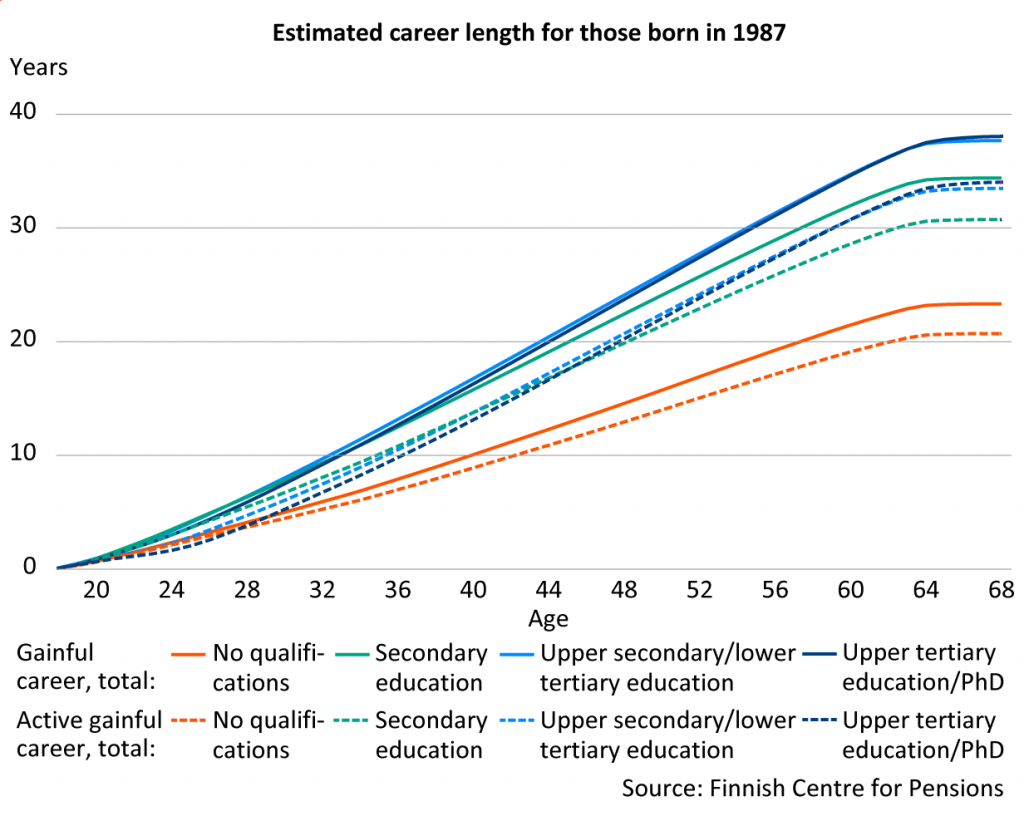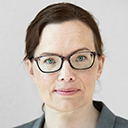Finnish working careers are slowly getting longer

The overall length of careers is growing rather slowly. A new study by the Finnish Centre for Pensions reveals that, for most Finns, working careers have lengthened, but for some, they have become even shorter than before.
The length of a career and the earnings during it are the most crucial factors influencing pension accrual and, consequently, retirement income. In recent years, the Finnish Centre for Pensions has developed several indicators for the length of work careers. The most recent of these are gainful career and active career.
“Gainful career measures the accumulated career as comprehensively as possible, including all paid work for which pension contributions have been made. It also includes periods overlapping with paid work, such as parental and sickness allowances, as well as unemployment and disability periods. Active career, on the other hand, aims to describe that part of the career during which a person is primarily engaged in paid work”, explains Senior Researcher Noora Järnefelt from the Finnish Centre for Pensions.
The Finnish Centre for Pensions’ new study reveals that the length of the gainful career has increased slowly for Finns.
From 2010 to 2022, the length of gainful careers increased by an average of 1.2 years from the age of 18 and retirement.
“The length of gainful careers has increased the most for those over 50. From 2010 to 2022, the length of gainful careers pursued after age 50 increased by 2.1 years. Men accumulated more career years on average than women. However, the gap has narrowed as the length of women’s gainful careers has increased faster than men’s”, Järnefelt says.
Men with lower education levels have difficulties extending their careers
The development of careers may seem contradictory: the overall length of careers increases rather slowly, even though careers extend at the end as retirement occurs later. This is because work careers have shifted to a later point in life.
“In the youth of those now retiring, education leading to a degree expanded significantly in Finland. As a counterbalance to longer study periods, we now see careers extending towards the end”, notes Järnefelt.
However, some Finns do not work longer. For about one in ten, the career has shortened alarmingly.
“Since 2010, those with short gainful careers have seen their careers end even sooner, especially men with a low education level. Among men, 10 per cent had a pension-insured gainful career of 16.4 years at most at the start of their old-age pension in 2022. Among women, the corresponding figure was 15.5 years at most.
In contrast, the careers of individuals with a higher tertiary degree seem to be extending well. In the study by the Finnish Centre for Pensions, a model of the work career for those born in 1987 produced an average career of 38 years for those with a higher tertiary education. Many have even longer work careers than the average.
“In the future, careers of over 40 years can be very common”, Järnefelt estimates.

Women’s work careers include more apytical work
There are also significant gender differences in the careers of Finns. The new study shows that women’s work careers contain more periods of atypical work.
“Women have more situations where paid work and another main activity occur simultaneously. Thus, women’s active careers are shorter at all education levels than men’s.”
Parental leaves shorten women’s active careers significantly more than men’s in all education levels.
For both genders, disability shortens the active career the most for those with a secondary education, but this happens more for women than for men.
Overlap of gainful work and unemployment benefits was clearly more common among those with secondary education than those with tertiary education. This is especially pronounced for women.
